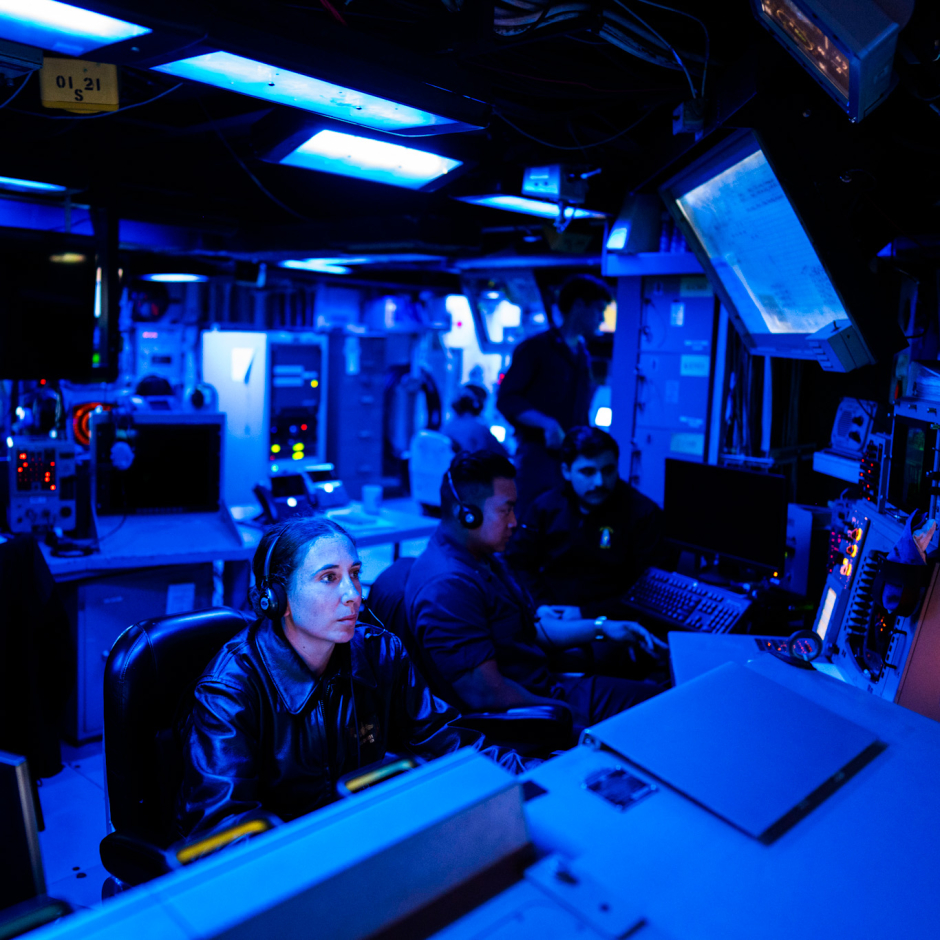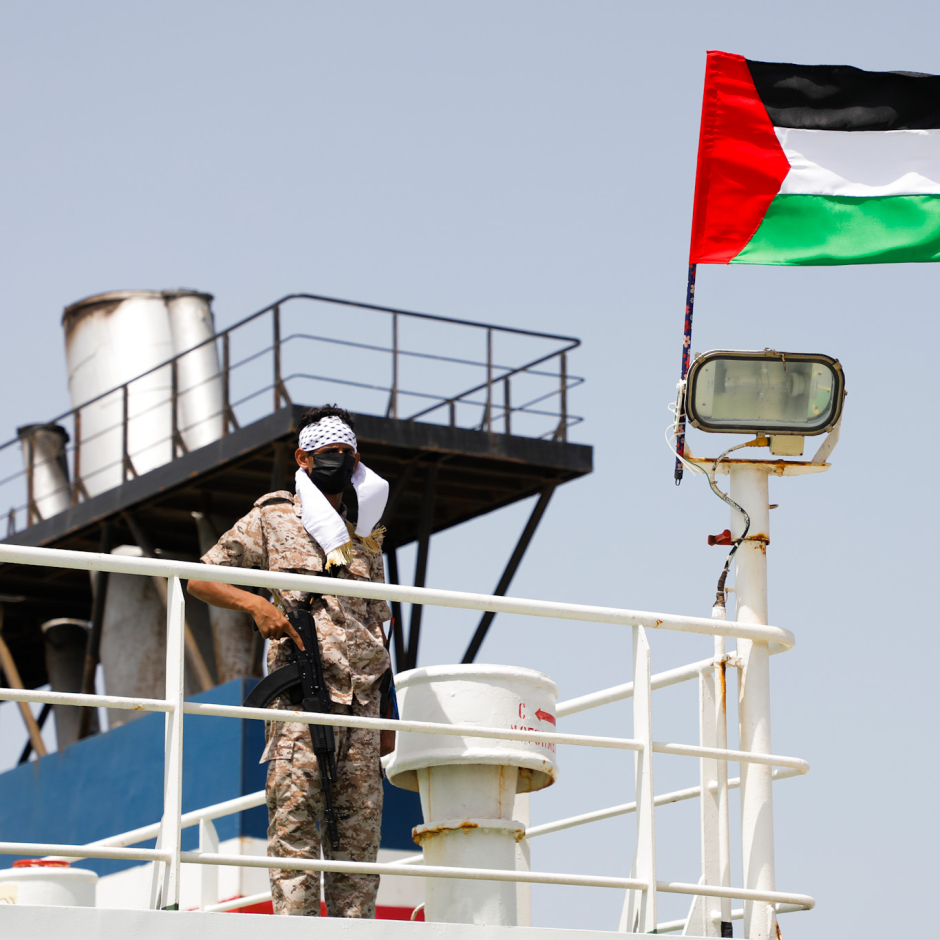Tragic stories of civilian deaths due to false or misleading intelligence, often obtained by poorly paid local collaborators, are not just relics of the past. These incidents, once common in Afghan and Iraqi cities during their respective U.S. occupations, are now leaving their mark in war-torn Yemen.
On the evening of May 31, Radio Hodeidah was broadcasting the tragic news from Gaza when a violent explosion silenced its signal. The strike, carried out by U.S. aircraft, destroyed the radio building. Several commercial ships and a Coast Guard facility were also struck in the operation, killing at least 16 people and injuring 41 others. According to an informant's confession, the strike was carried out based on coordinates provided by Yemeni informants to a shadowy US-Israeli intelligence unit operating in Yemen called Force 400.
After failing to stop Yemeni army operations in the Red Sea, Arabian Sea, and the Pacific Ocean, the U.S. and Britain have begun recruiting impoverished locals as informants and spies, offering financial rewards to those willing to trade local intelligence for cash. One of the most significant of these operations is Force 400, a joint intelligence operation spearheaded by Washington and Tel Aviv. Recently, Yemeni security services, with the help of local residents, arrested several informants working for the network.
MintPress News interviewed several of these informants to get a glimpse into America's shadow war in Yemen. A war that often results in civilian casualties and political unrest. These operations aim not to serve American interests but to protect Israel as it wages its genocidal campaign in Gaza.
Inside Force 400
Force 400 is based in Mokha, in southwestern Yemen. Ammar Mohammed Abdullah Saleh al-Ahmar, a former National Security Agency agent, leads the unit managed by American, Israeli, and Emirati officers. His mission is to recruit locals to monitor missile and drone launch sites and gather information on Yemeni armed forces, enabling the U.S. and U.K. to attack.
ISA, who asked that only his initials be used due to the dangerous nature of his work, is from a poor family in Hodeidah. He was recruited by Force 400 along with a handful of other spies. In January and February, he sold crucial information to U.S. and Israeli intelligence that resulted in targeted attacks that took the lives of nine civilians. ISA was tasked with monitoring naval movements, missile launch sites, and military reinforcements and passing that information on to Force 400 handlers.

"I photographed sites belonging to the Yemeni Navy while it was preparing for operations against Isreal ships in the Red Sea. I also provided American intelligence with coordinates for operations rooms, two military boats in the Al-Jah area, and farms from which ballistic missiles were being launched," ISA told MintPress.
We were trained to monitor coordinates via Google and Android Maps and send them to Anbar through WhatsApp."
ISA worked under the command of Ahmed Abourah, an intelligence staffer in the Seventh Brigade Republican Guards and an officer in Force 400. According to ISA, Abourah's mission was primarily to recruit more spies for the cause.
We received orders from Anbar in Mokha city from Ammar Saleh, who went by the nickname al-Faris. The orders were relayed through Ahmed Abourah, who attended meetings in Anbar with foreigners. I participated in several of these meetings. We were also trained in the Abu Musa camp in Al-Khawkha, which al-Faris runs."
AAS, another Force 400 asset who requested his name not be used, told MintPress that Force 400's operations room, which the informants called "Anbar," is highly secure. Four separate gates are required to gain entry. The first is called the Yemeni gate, where the initial inspection occurs, followed by Yafa, the second gate. Sudanese soldiers guard the third gate, which leads to the fourth gate, administered and staffed by the Emiratis.
There is a prison near Anbar that is used to house detainees and sometimes to torture them. According to AAS, "orders to hold, release or torture detainees are given by either al-Faris or the Emiratis.
It became clear to me that the information I was providing to American and Israeli intelligence was valuable because as soon as the information reached al-Faris, U.S. planes and battleships immediately targeted [that location]. I saw the destruction in these places before I was arrested."
MHM, from a tribal family in Al-Tuhaytah, detailed the use of code names and encryption to communicate. Terms like "bee" for missiles, planes, and drones, along with "cow" for tank and "sheep" for army, were used to disguise their activities. MHM and other agents monitored missile launch sites and military movements, providing crucial intelligence for U.S. and Israeli attacks.
YMK, who comes from a conservative family in Hodeidah's al-Hawk District, was assigned the task of monitoring mining operations, missile launch sites and other sensitive military intelligence.
After AnsarAllah launched missiles toward American and Israeli battleships from ad-Durayhimi, Ahmed Balous Ateeq, a member of Force 400, contacted me. He asked me to monitor places and farms from which missiles were being launched towards Israeli ships. He asked me for information about the equipment used in ad-Durayhimi, such as the locations of snipers, tanks, and places where soldiers were gathering."

"I was also assigned to study the extent to which the local population supported operations carried out by Ansar Allah. In the end, I was able to monitor a number of places from which missiles and drones were launched, a number of weapons stores, trenches and islands, all of which were later targeted by American aircraft and battleships."YMK told MintPress, adding,"And I feel guilty about it."
While YMK and ISA strictly sold information, other informants went further. AAS and other Force 400 assets who spoke to MintPress for this story were tasked with standard intelligence-gathering activities like identifying launch sites and reporting reinforcements. But they also conducted sabotage missions disguised as customs workers, such as burning military vehicles for payment, a task meant to spark civil unrest that earned them a handsome $800 per mission.
"We burned several military tankers. We also set fire to cars belonging to citizens in Beit al-Faqih and the Husseiniya area."Two informants turned saboteurs, OAK and AIJ, told MintPress.
In order to ensure the success of their operations, the informants were trained to take advantage of Yemen's conservative cultural norms, including the taboo on male military and police officials searching women. SMA, a local Force 400 asset, detailed the process.
In one of the operations, I disguised myself in a women's robe given to me by a Force 400 operative named Omar Mahlouf. Then, I went out to an area where a citizen's car, a Toyota Hilux, was parked and was able to set it on fire. We sent a video documenting the burning to our contact at Force 400."
Joint Operations and Local Militias
Israel's success in gaining a foothold in southwestern Yemen by leveraging its alliance with the UAE is an open secret. Before the onset of Ansar Allah's blockade of Israeli ships, normalization between Israel and the UAE ostensibly began in August 2020. Both countries established military and intelligence centers on Yemen's island of Socotra, located about 240 kilometers east of Somalia's coast and 380 kilometers south of the Arabian Peninsula. They also built joint military facilities on Mayon Island, situated at the southern end of Bab al-Mandab Strait, a crucial location for monitoring ship movements.
According to official Ansar Allah sources, Israel's Mossad and the UAE have been running joint operations rooms on the western coast of Yemen for years, particularly in the Al-Mukha District, the city of Aden, and Socotra Island. These operations are backed by local militias that have been fighting Ansar Allah for power in Western Yemen for over a decade, such as the notorious forces of Tariq Afash and the UAE-backed Southern Transitional Council.
The Southern Transitional Council was the same militia that recently announced its readiness to join an international coalition to protect Israeli ships crossing the Red and Arabian Seas. It also expressed interest in cooperating with Israel to combat Ansar Allah directly with Israeli support, suggesting Israel may be backing certain groups in Yemen against their traditional foes, putting years of fragile peace on shaky ground and risking plunging Yemen into another deadly civil war.
The Southern Transitional Council has long been suspected of working with Israel to quell the popular rise of Ansar Allah, and recent comments made by General Tareq Saleh, Vice President of the council, do little to alleviate those concerns. Presidential Leadership Council
In a conservative society like Yemen, spying for foreign powers is viewed as a serious transgression and a blatant violation of not only national but also tribal and religious values. Consequently, foreign intelligence efforts often yield opposite results. While operators aim to weaken Ansar Allah and dismantle the social fabric of Yemen, these efforts have inadvertently increased support for Ansar Allah among tribal and liberal forces alike, particularly in the south, which is controlled by Washington's allies.
Force 400 operators may have imagined that recruiting locals to report ballistic missiles and drone sites would force Ansar Allah to halt its operations in support of Gaza. However, this strategy seems to have backfired for all intents and purposes. Instead of reducing attacks, military operations against Israel have increased, extending not only into the Red Sea and the Arabian Sea but also reaching the Mediterranean Sea and targeting not only Israeli-linked ships but also U.S. and British ships working in concert with Israel.
Yemeni provinces continue to hold mass demonstrations in support of Gaza, with weekly protests under the banner "Steadfast with Gaza, resisting all conspiracies." Ansar Allah's leader recently confirmed the intent to continue military operations, reporting that 145 ships linked to Israel, the U.S., and Britain had been targeted so far and insisting that the escalation is part of a broader strategy to pressure Israel into ending its siege on Gaza.
Feature photo |Illustration by MintPress News
Ahmed AbdulKareem is a Yemeni journalist based in Sana'a. He covers the war in Yemen for MintPress News as well as local Yemeni media.
